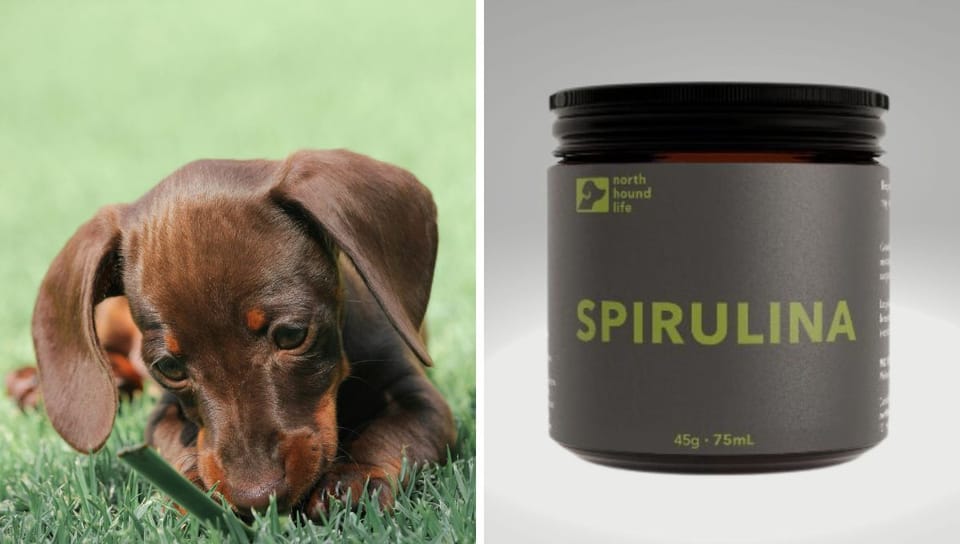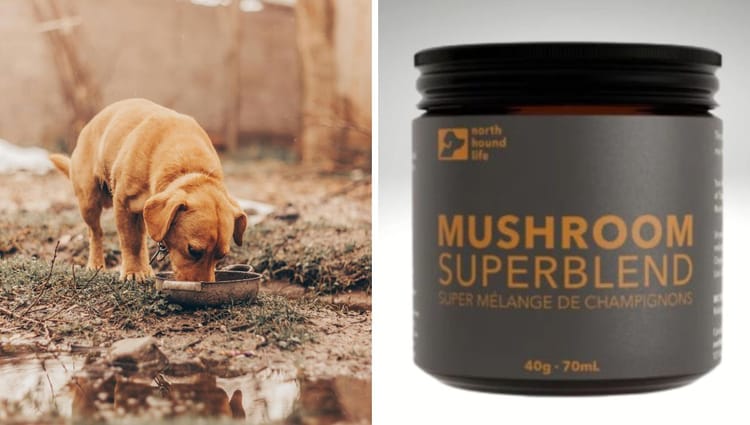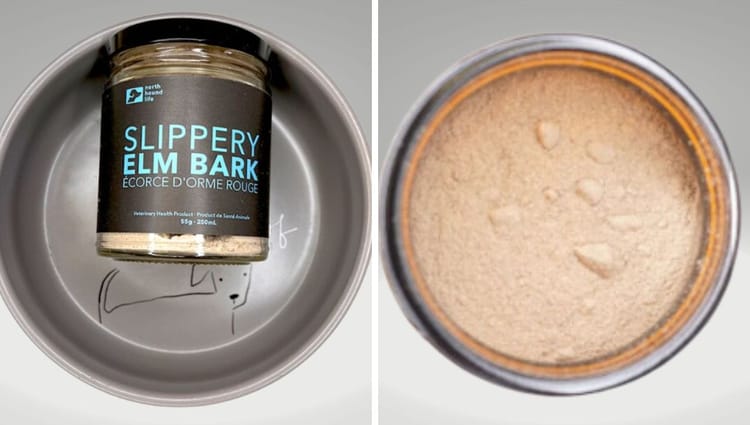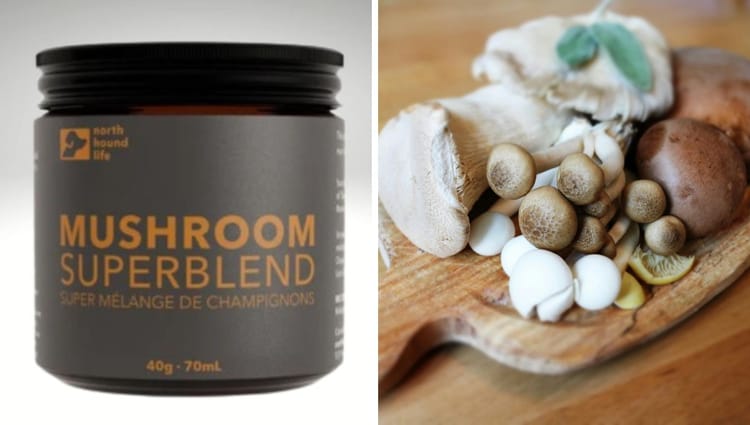Super Spirulina: Unleash Your Dog's Inner Green Machine!

Key Takeaways:
- Organic spirulina is a nutrient-dense supplement beneficial for dogs' overall health.
- It supports immune function, improves digestion, and enhances coat quality.
- Choosing high-quality, organic spirulina ensures safety and efficacy for your furry friend.
What is Spirulina?
Spirulina is a blue-green algae that has been around for billions of years. It's packed with nutrients, including protein, vitamins, minerals, and antioxidants. This superfood has gained popularity not only among humans but also as a supplement for pets, particularly dogs. The organic variety ensures the spirulina is free from harmful chemicals and contaminants, making it a safer choice for your canine companion.
For dogs, spirulina can be a game-changer. It provides essential nutrients that might be missing from their regular diet. This algae is rich in protein, which is crucial for muscle development and repair. Additionally, it contains vitamins like B12, which supports energy levels and overall vitality. By incorporating organic spirulina into your dog's diet, you're giving them a natural boost that can improve their health in multiple ways.
Benefits of Organic Spirulina for Dogs
One of the standout benefits of organic spirulina is its ability to support the immune system. The antioxidants in spirulina help combat free radicals, which can cause cellular damage. This means your dog is less likely to fall ill and can recover more quickly from any health issues. Moreover, spirulina's anti-inflammatory properties can help manage conditions like arthritis, making it a great supplement for older dogs.
Another significant benefit is improved digestion. Spirulina contains enzymes that aid in breaking down food, making it easier for your dog to absorb nutrients. This can be particularly beneficial for dogs with sensitive stomachs or digestive issues. Additionally, the high fibre content in spirulina helps regulate bowel movements, reducing the risk of constipation or diarrhea.
How to Choose the Best Organic Spirulina Supplement
When selecting an organic spirulina supplement for your dog, it's essential to look for high-quality products. Check the label for certifications that indicate the spirulina is genuinely organic. This ensures that the algae are grown without the use of harmful pesticides or chemicals. Additionally, opt for products that have been tested for contaminants like heavy metals, which can be harmful to your dog's health.
Another factor to consider is the form of the supplement. Spirulina is available in various forms, including powder, tablets, and capsules. Powdered spirulina can be easily mixed into your dog's food, while tablets and capsules might be more convenient for some pet owners. Choose the form that best suits your dog's preferences and your lifestyle.
Dosage and Administration
Determining the correct dosage of spirulina for your dog is crucial for its effectiveness. Generally, the recommended dosage is based on your dog's weight. For small dogs, a quarter teaspoon of powdered spirulina per day is usually sufficient. Medium-sized dogs can have half a teaspoon, while large dogs might need up to a full teaspoon. Always start with a smaller dose and gradually increase it to avoid adverse reactions.
Administering spirulina is straightforward. If you're using powdered spirulina, simply sprinkle it over your dog's food. For tablets or capsules, you can either mix them into the food or give them directly to your dog as a treat. Some dogs might be hesitant to try something new, so you might need to experiment with different methods to find what works best for your furry friend.
Potential Side Effects
While spirulina is generally safe for dogs, it's essential to be aware of potential side effects. Some dogs might experience mild digestive issues, such as gas or diarrhea, when they first start taking spirulina. These symptoms usually subside as your dog's system adjusts to the new supplement. If the symptoms persist, it's best to consult your veterinarian.
Another potential side effect is an allergic reaction. Although rare, some dogs might be allergic to spirulina. Signs of an allergic reaction include itching, swelling, and difficulty breathing. If you notice any of these symptoms, discontinue the supplement immediately and seek veterinary care. Always monitor your dog closely when introducing any new supplement to their diet.
Combining Spirulina with Other Supplements
Spirulina can be combined with other supplements to enhance its benefits. For example, pairing spirulina with fish oil can provide a powerful boost of omega-3 fatty acids, which are excellent for your dog's skin and coat health. Additionally, combining spirulina with probiotics can further improve your dog's digestive health, as both supplements support a healthy gut microbiome.
However, it's essential to consult your veterinarian before combining supplements. Some combinations might not be suitable for your dog's specific health needs or conditions. Your vet can provide guidance on the best supplement regimen for your dog, ensuring they receive the maximum benefits without any adverse effects.
Case Studies: Real-Life Success Stories
Many dog owners have reported significant improvements in their pets' health after introducing organic spirulina into their diets. For instance, a Labrador named Max struggled with chronic skin issues and low energy levels. After a few weeks of taking spirulina, Max's coat became shinier, and his energy levels improved dramatically. His owner was thrilled with the results and continued to use spirulina as a regular part of Max's diet.
Another success story involves a senior Beagle named Daisy, who suffered from arthritis. Her owner started giving her spirulina to help manage her inflammation. Within a month, Daisy showed noticeable improvements in her mobility and seemed more comfortable during her daily walks. These real-life examples highlight the potential benefits of spirulina for dogs with various health issues.
Common Myths About Spirulina
There are several myths surrounding spirulina that can cause confusion for pet owners. One common misconception is that spirulina is a type of seaweed. In reality, spirulina is a freshwater algae, not seaweed. This distinction is important because it affects the nutrient profile and potential contaminants in the supplement.
Another myth is that spirulina can replace a balanced diet. While spirulina is nutrient-dense, it should not be used as a substitute for a well-rounded diet. It is a supplement, meaning it should complement your dog's regular food, not replace it. Ensuring your dog receives a balanced diet is crucial for their overall health and well-being.
Where to Buy Organic Spirulina for Dogs
Finding a reliable source for organic spirulina is essential to ensure you're getting a high-quality product. Many pet stores carry spirulina supplements, but it's crucial to read labels and reviews carefully. Look for products that are certified organic and have undergone third-party testing for contaminants. This ensures that the spirulina is safe and effective for your dog.
Online retailers also offer a wide range of spirulina supplements. Additionally, some specialty pet stores and holistic veterinarians might carry high-quality spirulina supplements. Always do your research and choose a reputable source to ensure the best for your furry friend.
DIY Spirulina Treats for Dogs
Making your own spirulina treats at home can be a fun and rewarding way to incorporate this superfood into your dog's diet. One simple recipe involves mixing spirulina powder with peanut butter and oats. Roll the mixture into small balls and refrigerate them until firm. These treats are not only nutritious but also delicious, making them a hit with most dogs.
Another easy recipe is spirulina dog biscuits. Combine whole wheat flour, spirulina powder, and chicken broth to form a dough. Roll out the dough and cut it into shapes using cookie cutters. Bake the biscuits in the oven until they are golden brown. These homemade treats are a great way to ensure your dog gets the benefits of spirulina in a tasty and enjoyable form.
Summary
Organic spirulina is a powerhouse supplement that can significantly enhance your dog's health. From boosting the immune system to improving digestion and coat quality, the benefits are numerous. By choosing high-quality, organic spirulina and administering it correctly, you can provide your furry friend with a natural, nutrient-dense boost. Always consult your veterinarian before introducing any new supplement to ensure it's the right choice for your dog's specific needs.
FAQ
1. Can all dogs take spirulina?
Most dogs can safely take spirulina, but it's always best to consult your veterinarian before introducing any new supplement. Some dogs with specific health conditions or allergies might not be suitable candidates for spirulina.
2. How long does it take to see the benefits of spirulina?
The time it takes to see benefits can vary depending on your dog's health and the dosage. Some owners report noticeable improvements within a few weeks, while others might take a bit longer. Consistency is key to achieving the best results.
3. Can spirulina be given to puppies?
Yes, spirulina can be given to puppies, but the dosage should be adjusted according to their size and weight. Always consult your veterinarian to determine the appropriate dosage for your puppy to ensure their safety and well-being.






